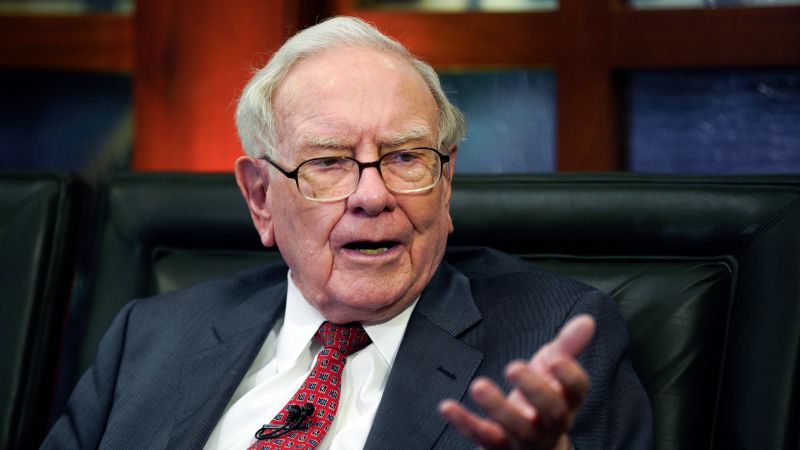The “Buffett Indicator,” created by Warren Buffett in 2001, measures the size of the US stock market against the size of the economy. This indicator has recently reached a two-year high, sitting at nearly 190%. This could signal an impending market retreat, as historically high levels of the indicator have been followed by market drops. Analysts are warning that the stock market may be in bubble territory due to investor enthusiasm over artificial intelligence stocks and hopes for interest rate cuts by the Federal Reserve. Some experts are expressing concerns that the current market conditions resemble those before significant crashes in 2000 and 2008.
Despite the frothy market conditions and concerns of a potential bubble, JPMorgan Chase CEO Jamie Dimon believes that the current excitement over artificial intelligence stocks is not hype but a legitimate trend. While the “Buffett Indicator” may have limitations and not account for certain factors like international revenue for companies, the current market surge is not entirely unwarranted according to some analysts. Approximately 23% of S&P 500 companies made new 52-week highs last week, and the market continues to rise heading into the end of the quarter.
In a landmark settlement between Visa, Mastercard, and merchants, the credit card networks have agreed to lower swipe fees for transactions made with their cards. The $30 billion settlement will lower fees paid by merchants over the next five years, in what could be a significant relief for businesses dealing with high transaction costs. This settlement follows a lawsuit filed in 2005 and is expected to impact swipe fees by at least 0.04 percentage points for a minimum of three years, benefitting US merchants who have long struggled with high transaction costs.
In business news, Donald Trump’s business empire made a public debut after almost 30 years. Trump Media & Technology Group, the owner of Truth Social, began trading publicly under the symbol “DJT.” Following a surge of 56% at the opening bell, the stock’s price eventually settled around $70 before closing at $57.99, marking a more modest 16% increase. Despite the frenzy surrounding the initial public offering, analysts suggest that the stock may be overvalued based on fundamentals, similar to the phenomenon seen with meme stocks like GameStop and AMC during the Covid-19 pandemic.
Overall, the stock market is experiencing high levels of optimism and speculative activity, driven by factors such as surging AI stocks and hopes for interest rate cuts. While the “Buffett Indicator” suggests the market may be overvalued, experts have differing opinions on the severity of the situation. As the market heads into the end of the quarter and with earnings reports on the horizon, investors remain cautiously optimistic but wary of potential negative catalysts that could trigger a market downturn.


